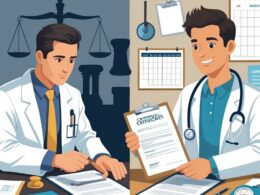When legal cases involve medical issues, courts need expert medical opinions to make informed decisions. Medical professionals with proper qualifications and experience can write medico-legal reports, including treating doctors, independent medical experts, and specialists in relevant fields.
These reports bridge the gap between complex medical information and legal proceedings.
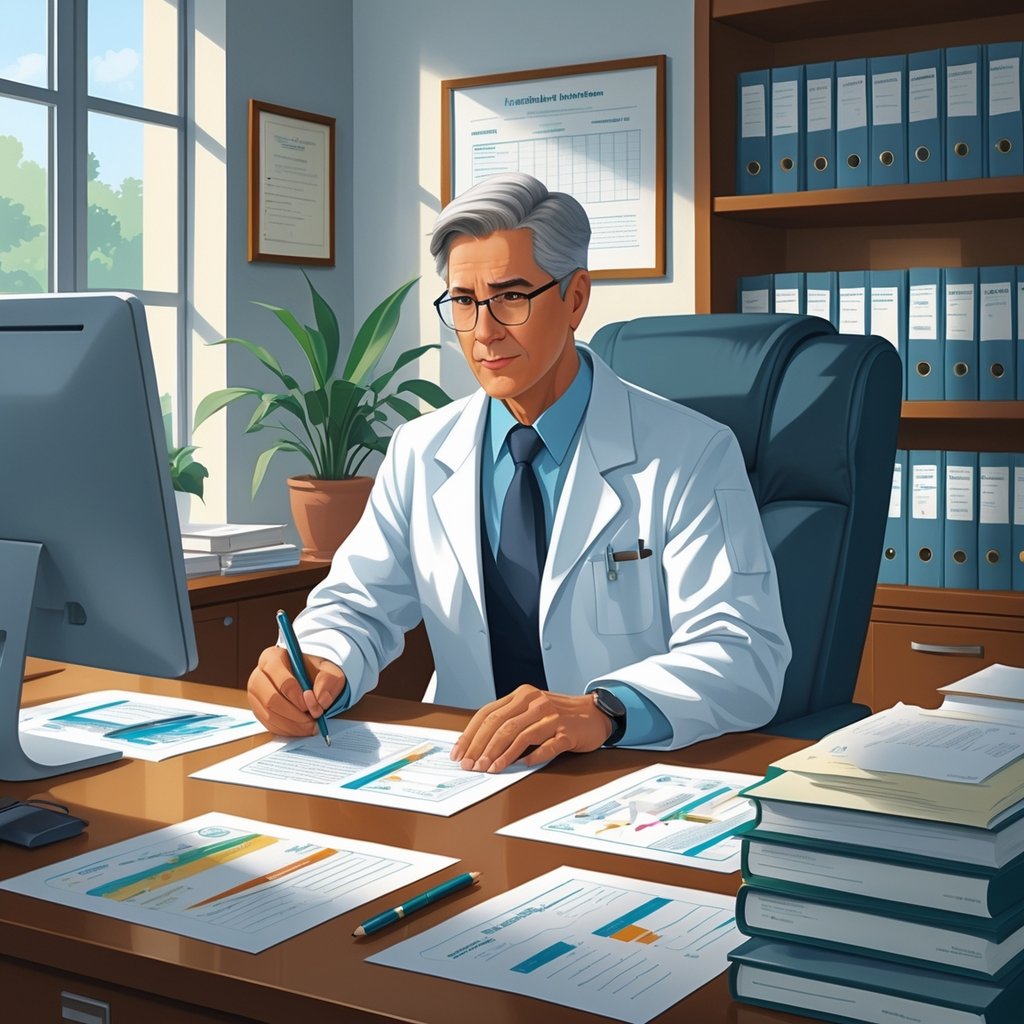
Who can write a medicolegal report depends on the specific case requirements and the type of medical expertise needed. Your treating doctor may provide a report about your condition and treatment history.
Independent medical experts who have no prior relationship with you can offer unbiased opinions for court cases.
The legal system relies on these medical reports to understand injuries, disabilities, and health conditions that affect legal outcomes. If you need a report for a personal injury claim, workers’ compensation case, or insurance dispute, the right medical professional can provide the documentation you need.
Key Takeaways
- Qualified medical professionals including treating doctors and independent experts can write medico-legal reports for court cases
- These reports must meet specific legal standards and include detailed medical opinions based on examination and records
- The choice of who writes your report depends on if you need a treating doctor’s perspective or an independent medical opinion
Defining a Medico Legal Report
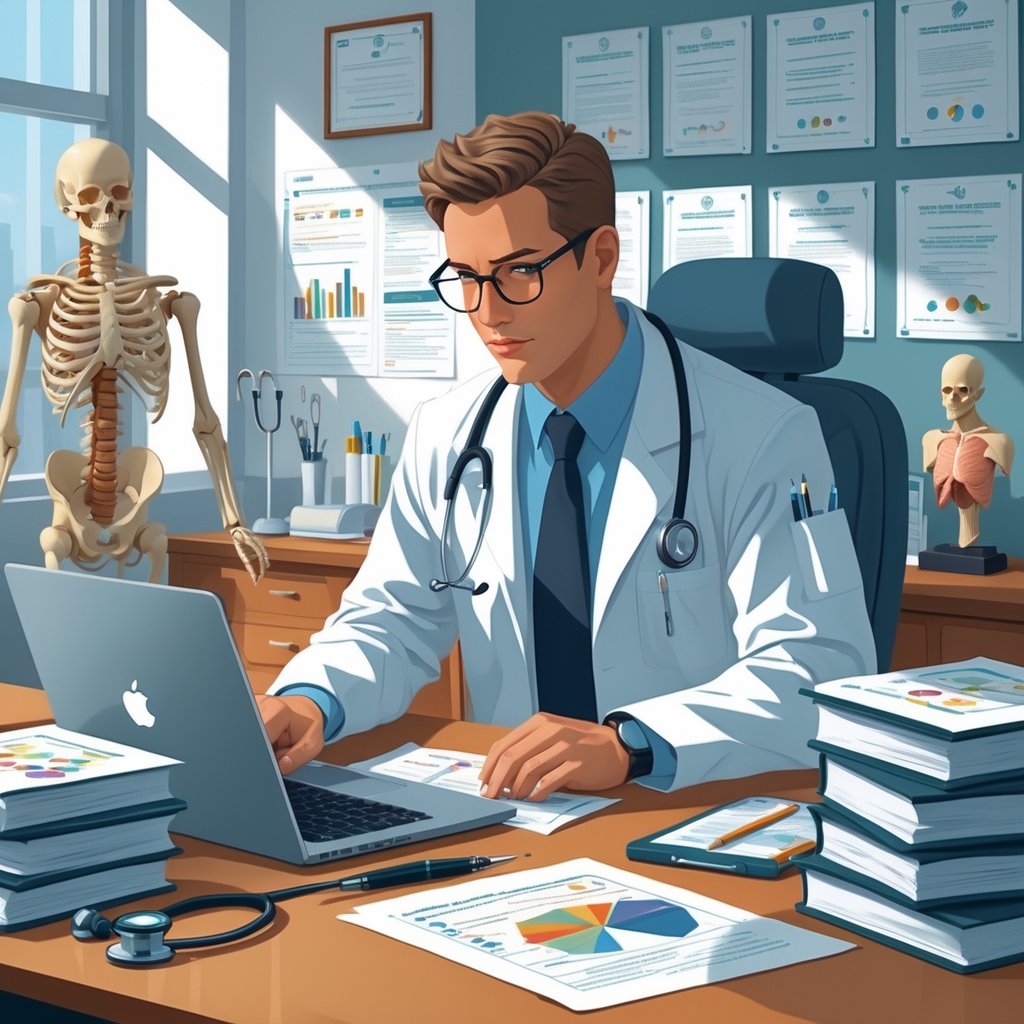
A medico legal report is a medical document written by healthcare professionals for use in legal and insurance matters. These reports provide medical opinions based on patient records, examinations, and expert analysis to support various legal proceedings.
Purpose of Medico Legal Reports
Medico legal reports are required for personal injury claims and medical negligence cases. They serve as crucial evidence in court proceedings by providing medical expertise to legal professionals.
Primary purposes include:
- Supporting insurance claims with medical evidence
- Providing expert medical opinions for litigation
- Documenting injuries and their impact on daily life
- Establishing causation between incidents and medical conditions
These reports may be used as evidence in court proceedings and subjected to close scrutiny. Insurance companies rely on them to assess claim validity and determine compensation amounts.
They translate complex medical information into language that legal professionals can understand and use effectively.
Types of Legal and Insurance Cases Involving Reports
Medico-legal reports are prepared for various purposes including coronial inquests, civil law claims, third-party motor vehicle accidents, and workers’ compensation matters. Each case type requires specific medical information and analysis.
Common case types include:
- Personal injury claims – Document injuries from accidents or incidents
- Workers’ compensation – Assess work-related injuries and disabilities
- Motor vehicle accidents – Evaluate crash-related injuries and recovery
- Medical negligence – Analyze standard of care issues
- Disability assessments – Determine functional limitations
Medical reports are also needed for family law, probate law, and wardship cases. Criminal proceedings may require forensic medical opinions as well.
Insurance companies use these reports to process claims fairly. Court proceedings depend on accurate medical opinions to reach just decisions.
Contents and Structure
Medico legal reports include client information, medical history, incident details, and injury analysis based on expert investigation. The structure follows specific guidelines to ensure completeness and legal compliance.
Key report sections:
- Patient demographics and contact information
- Medical history relevant to the case
- Details of the incident or condition
- Clinical examination findings
- Review of medical records and test results
- Medical opinion on causation and prognosis
Reports written under Part 35 rules by the Ministry of Justice must be clear and specific about stated facts. The expert’s advice should focus only on information needed for the legal matter.
Medical records form the foundation of accurate reporting. Your medical opinion must be supported by documented evidence and clinical findings to withstand legal scrutiny.
Who Can Write a Medico Legal Report

Several types of medical professionals can write medico legal reports, each with specific qualifications and roles. The requirements depend on if you need a treating doctor’s report or an independent expert opinion.
Qualifications and Registration Requirements
Any doctor who writes a medico legal report must hold current medical registration. You need to verify that your chosen medical professional is registered with their relevant medical board.
Basic Requirements:
- Current medical license
- Professional indemnity insurance
- Relevant clinical experience
- Understanding of legal report writing
Practicing physicians in designated hospitals commonly receive requests for medico legal reports from various sources. These include patients, insurance companies, employers, police departments, and courts.
The doctor must have appropriate training in report writing. General practitioners play an important role in providing medico legal reports about their patients for many different purposes.
Role of the Treating Doctor
Your treating doctor can write a medico legal report based on their direct care of you. This type of report focuses on facts from your medical records and treatment history.
Treating doctors provide factual information about:
- Medical history and examination findings
- Treatment provided and response to therapy
- Current condition and functional limitations
- Prognosis based on clinical observations
You may be asked to prepare a medico legal report as the treating doctor for various legal purposes. These include coronial inquests, civil claims, motor vehicle accidents, and workers’ compensation matters.
Treating doctors cannot provide opinions outside their area of expertise. They must stick to facts from your medical care and avoid speculation.
Specialists and Consultants
Medical specialists can write reports within their area of expertise. You might need a specialist report when your case involves complex medical issues requiring expert knowledge.
Common Specialist Reports:
- Orthopedic surgeons for injury assessments
- Psychiatrists for mental health evaluations
- Neurologists for brain and nerve conditions
- Cardiologists for heart-related issues
Specialists bring deeper knowledge of specific medical conditions. They can provide more detailed analysis of complex cases than general practitioners.
The specialist must have relevant experience in the specific condition or injury. Their report carries more weight when dealing with specialized medical topics.
Independent Medical Experts
Independent medical experts provide objective opinions without a prior doctor-patient relationship. You use these experts when you need an unbiased assessment for legal proceedings.
Key Features of Independent Experts:
- No previous treatment relationship with you
- Appointed by lawyers or courts
- Provide objective medical opinions
- Can act as expert witnesses in court
An expert witness medico legal report requires specific skills and understanding of legal requirements. These doctors must understand both medical and legal principles.
Independent experts often have special training in medico legal work. They understand court procedures and can explain complex medical issues to non-medical audiences.
The expert must have relevant qualifications in the medical area being examined. Courts rely on their independent professional opinion to help make legal decisions.
Key Elements Required in a Medico Legal Report
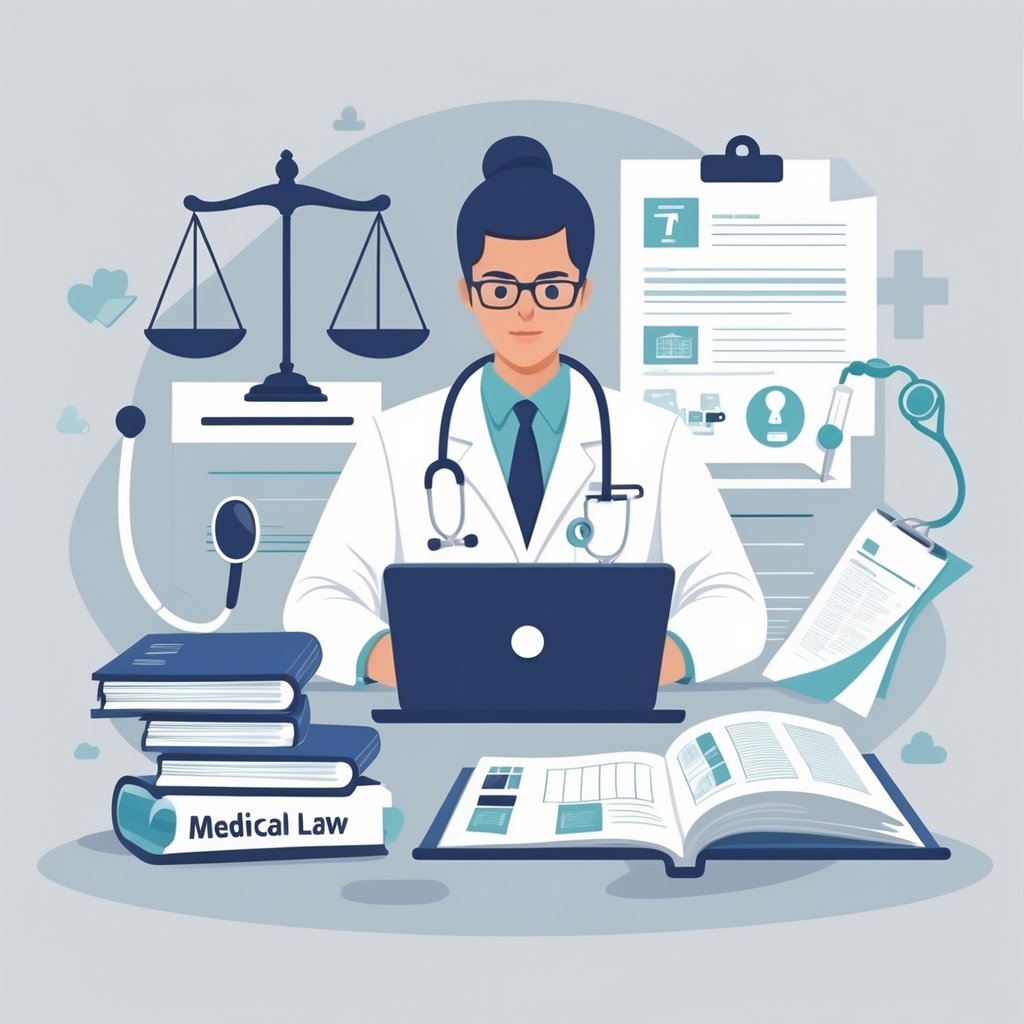
A comprehensive medico-legal report must include complete medical documentation and clinical findings. The report requires detailed patient history, thorough examination results, and clear diagnostic conclusions with treatment recommendations.
Medical History and Records
Your medical history section forms the foundation of any medico-legal report. You must document the patient’s complete medical background before the incident in question.
Include all relevant past medical conditions, surgeries, and medications. Document any previous injuries or treatments that might affect the current case.
You should gather information from multiple sources. Review hospital records, GP notes, and specialist consultations.
Interview the patient about symptoms and functional limitations.
Essential medical history components:
- Pre-existing medical conditions
- Previous surgeries and hospitalizations
- Current medications and allergies
- Family medical history (when relevant)
- Social history including occupation and lifestyle factors
Your documentation must be chronological and factual. Avoid speculation about causation at this stage.
Focus on creating an accurate timeline of medical events.
Physical Examination and Observations
Your physical examination findings must be objective and detailed. Document all abnormalities and normal findings equally.
Conduct a systematic examination relevant to the legal issues. Focus extra attention on areas related to the claimed injuries or conditions.
Key examination elements include:
- Vital signs and general appearance
- Specific injury sites with measurements
- Range of motion and functional testing
- Neurological assessments when indicated
- Mental state evaluation if relevant
You should use standardized scales and measurements where possible. Take photographs of visible injuries with proper consent.
Document the patient’s pain levels and functional limitations objectively.
Record negative findings clearly. These can be as important as positive findings in legal proceedings.
Diagnosis and Treatment Details
Your diagnostic section must link examination findings to specific medical conditions. Base all diagnoses on clinical evidence and established medical criteria.
Provide primary and differential diagnoses where appropriate. Explain the reasoning behind each diagnostic conclusion using medical evidence.
Treatment documentation should cover:
- Immediate treatment provided
- Ongoing treatment recommendations
- Referrals to specialists
- Expected recovery timeframes
- Long-term prognosis and limitations
You must distinguish between acute injuries and pre-existing conditions. Explain how the incident may have worsened existing problems.
Include specific treatment costs and duration estimates. Document any permanent impairments or disabilities resulting from the injuries.
Your treatment plan should be evidence-based and follow accepted medical guidelines.
Expert Medical Opinions and Legal Standards

Medical experts must meet specific criteria to have their opinions accepted in legal proceedings. Courts require impartial reporting that follows established standards for objectivity and professional conduct.
Criteria for Expert Opinion Acceptance
Courts evaluate expert medical opinions based on strict qualification standards. Medical experts must have relevant clinical expertise and familiarity with the specific issues to discharge their responsibilities properly.
Key qualification requirements include:
- Active medical license and registration with appropriate medical councils
- Specialized training and certification in the relevant medical field
- Substantial clinical experience in the area under review
- Current knowledge of practice standards at the time of the incident
You cannot provide expert opinions on cases that occurred before you gained relevant experience. If you stopped practicing years ago, your opinion may lack credibility for recent cases.
The timing of your qualifications matters. Courts prefer experts who practiced under similar circumstances and time periods as the case under review.
Impartiality and Objectivity in Reporting
Expert opinions must be wholly or substantially based on specialized medical knowledge. Personal bias shouldn’t guide your analysis.
Separate facts from your opinions when writing reports. That’s the only way to keep things clear for everyone involved.
Your job is to educate legal professionals about medical standards. This means you need to offer unbiased analysis that takes into account practice settings and available resources.
Negative findings hold just as much value as positive ones in court. You need to report all significant findings, even if they don’t support whoever asked for your input.
Written consent is required before releasing medical information or preparing legal reports. This step protects patient privacy and keeps you within the law.
Role in Court Proceedings and Peer Review
Expert witnesses help educate courts during legal proceedings. Litigation cases against doctors often hinge on expert physician opinions about standards of care.
You might be called to testify and answer questions about your written opinions. Preparation and a solid grasp of the case details are essential.
Peer review responsibilities include:
- Analyzing documentation from other medical professionals
- Evaluating adherence to established care standards
- Providing recommendations for risk assessment
- Identifying gaps in care or documentation
Medical institutions often form expert committees for complex cases. These groups should include medicolegal experts who get both the medical and legal sides of things.
Keep your expert opinions confidential throughout the legal process. Only authorized people should see your sealed reports.
Ethical and Legal Considerations
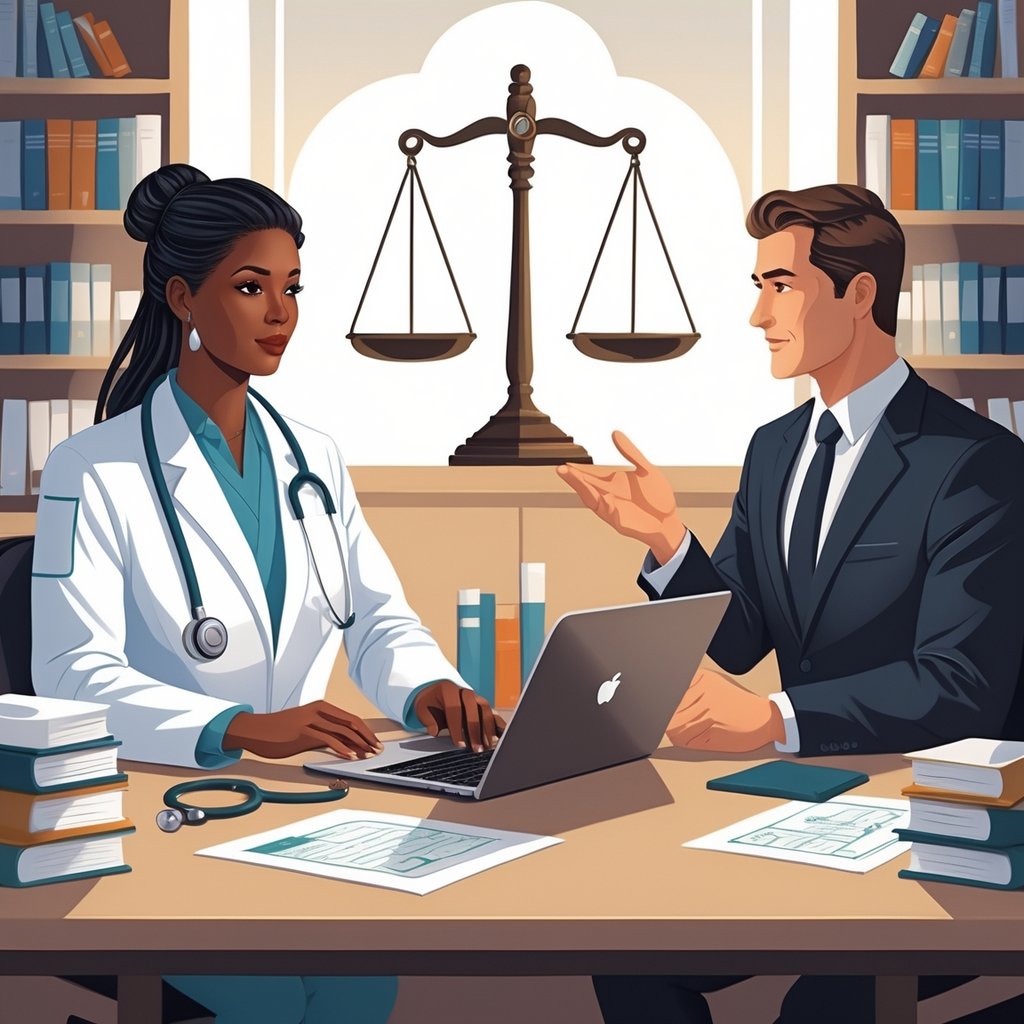
Medical professionals must get proper patient consent before preparing reports and stick to strict ethical guidelines. Compliance with regulatory requirements is the backbone of medico-legal practice.
Patient Consent and Confidentiality
You need written consent from patients before preparing any medico-legal report. Patient consent is required in most cases before doctors can release medical information for legal use.
Protecting patient confidentiality is your responsibility all the way through. Only include records that actually relate to the legal questions being asked.
Key consent requirements:
- Written authorization before report preparation
- Clear explanation of report purpose
- Patient understanding of information disclosure
Maintain strict confidentiality even after finishing the report. Secure all medical records and let only authorized people access them.
The legal system depends on you to follow these privacy standards. Breaking confidentiality rules can land you in serious professional or legal trouble.
Compliance with Legal and Ethical Standards
Medical practitioners must adhere to stringent ethical standards that shape their conduct and reporting. These rules keep assessments fair and compliant.
Follow the regulatory frameworks that apply in your region. Different places have their own requirements for medico-legal report preparation and submission.
Essential compliance areas:
- Professional registration requirements
- Specialty certification standards
- Continuing education obligations
- Documentation protocols
Keep your reports factual, objective, and complete. Answer only the questions asked and leave out irrelevant material.
The legal system counts on your unbiased judgment. Separate facts from opinions and reference your conclusions properly.
Other Professionals and Scenarios in Medicolegal Reporting

General practitioners and specialists aren’t the only ones involved in medico-legal work. Many other medical professionals step in for different legal scenarios.
Each of these experts brings something unique to the table, depending on the case.
Forensic Medical Experts and Pathologists
Forensic medical experts handle cases involving suspicious deaths, criminal investigations, or coroner inquests. They’ve got specialized training for examining evidence and figuring out causes of death or injury.
Pathologists perform autopsies and analyze tissue samples to establish medical facts in court. They often work with law enforcement and legal teams to provide objective medical evidence.
Key responsibilities include:
- Examining deceased individuals to determine cause of death
- Analyzing injury patterns in assault or accident cases
- Providing expert testimony in criminal proceedings
- Documenting findings for coroner investigations
Forensic doctors or pathologists are often called upon in criminal cases or coroner investigations. Their reports help establish the cause of injury or death, especially in suspicious situations.
They must keep their findings objective. Their work can make or break a criminal case or an insurance claim.
Primary Treating Physicians
Your treating doctor usually knows your medical history and current condition best. They’ve seen your treatment and recovery firsthand.
Primary care physicians and specialists who’ve treated you over time can offer real insight into your condition. They see how an injury or illness affects your daily life and work.
Advantages of treating physician reports:
- Long-term perspective on your condition
- Detailed treatment history and response to care
- Personal knowledge of functional limitations
- Ongoing monitoring of progress or deterioration
GPs are often asked to write reports when they have treated a patient over time. Their knowledge of a patient’s history is especially useful in claims, from simple soft tissue injuries to more complex chronic pain.
Treating physicians may have determined maximum medical improvement (MMI). At that point, your condition has stabilized and you’re unlikely to see further significant change.
Agreed Medical and Independent Evaluators
Independent medical evaluators (IMEs) offer unbiased assessments when a neutral opinion is needed. These doctors haven’t treated you before and don’t have a stake in the case.
Agreed medical evaluators (AMEs) get chosen through a legal process where both sides agree on the expert. This helps keep things fair.
Key characteristics:
- No previous doctor-patient relationship
- Selected for specific expertise in relevant medical areas
- Trained in legal report writing standards
- Must remain completely neutral and objective
Independent medical experts work as neutral assessors regardless of who refers the case. Law firms or insurers often instruct them, and they base opinions on single exams and relevant records.
IMEs and AMEs often determine MMI status in workers’ compensation cases. They assess your current condition, future treatment needs, and permanent limitations.
Their reports carry a lot of weight because of their independence. Courts and insurance companies lean on these neutral evaluations.
Frequently Asked Questions
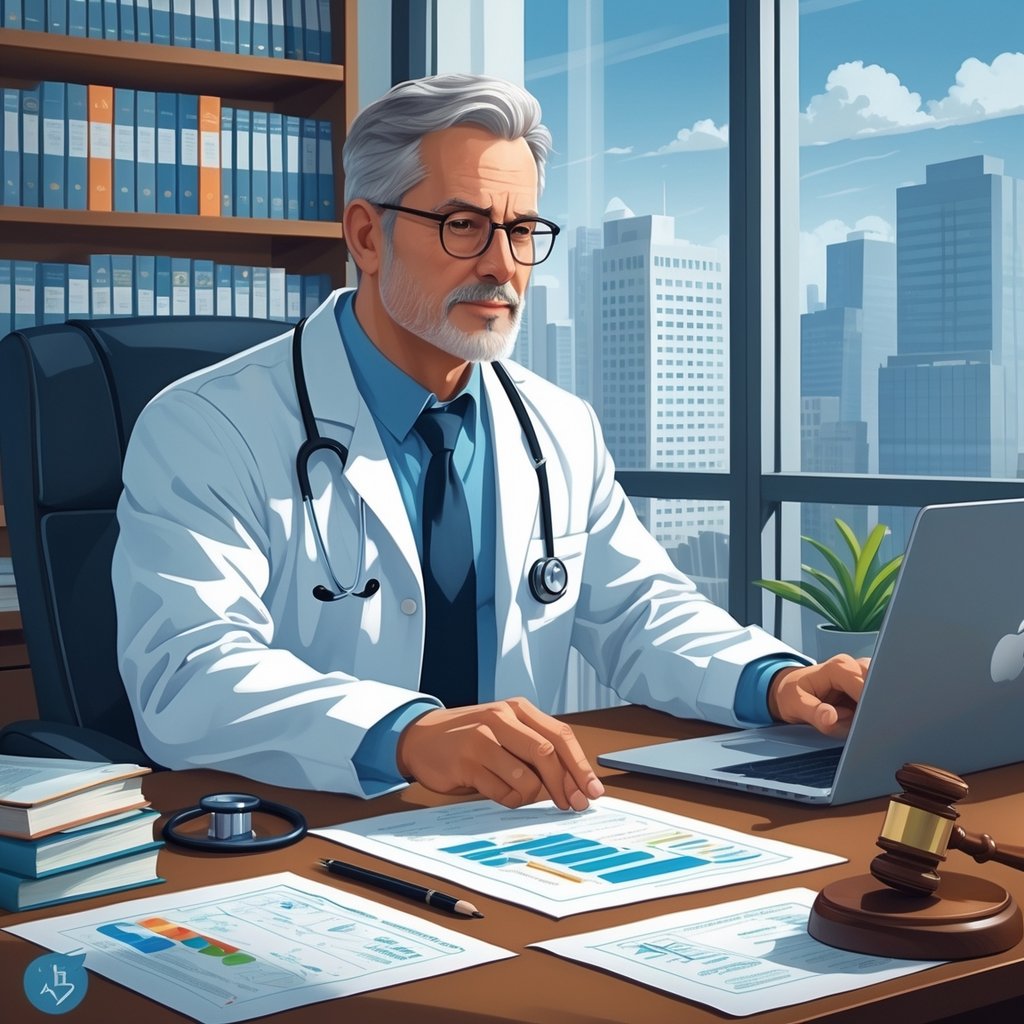
Medical practitioners need the right qualifications and have to follow proper procedures when creating medico-legal reports. These documents are legally important, so attention to authentication and professional liability is a must.
What qualifications are necessary for a professional to compose a medico-legal report?
You need to be a registered medical practitioner with relevant qualifications and experience to write a medico-legal report. This covers general practitioners, specialists, and consultants with active licenses.
Your clinical knowledge should be enough to form expert opinions in your field. You also need to know legal standards and be able to explain medical info clearly to people without medical backgrounds.
Make sure your credentials are recognized by the medical board in your area. Your registration must be current and in good standing, with no restrictions that would stop you from giving expert opinions.
Are there specific certifications required for practitioners to draft medico-legal documents?
Most places don’t require extra certifications beyond your medical license for medico-legal reports. Still, you should have training or experience relevant to the medical issues in question.
Some doctors go for extra training in forensic medicine or legal report writing. That kind of background helps you understand court procedures and legal requirements for expert testimony.
Your specialty should match the case. For example, orthopedic surgeons handle musculoskeletal injuries, while psychiatrists handle mental health issues.
What is the standard procedure for preparing a medico-legal report?
Get written patient consent before preparing a report for legal use in most cases. This protects patient privacy and ensures legal compliance.
Review all relevant medical records and documentation. If needed, do a comprehensive examination focused on the medical issues that matter for the case.
Structure your report with patient history, clinical findings, diagnosis, and prognosis. Use clear, objective language that’s easy for non-medical folks to follow.
Base your expert opinion on medical evidence, not speculation. Sign and date the report to make it official.
How can one verify the authenticity of a medico-legal report?
You can check a practitioner’s medical registration through your local medical board’s online database. This will show their license status and any disciplinary actions.
Look for the doctor’s identification, registration number, and qualifications on the report. Authentic reports should be signed and, if possible, on official letterhead.
Contact the medical practice or institution to confirm the report came from that practitioner. Many organizations keep records of medico-legal reports written by their staff.
Consistent formatting and a professional look are typical of legitimate reports. Authentic ones stick to established medical and legal writing standards.
Which medical professionals are most commonly approached to provide medico-legal reports?
General practitioners are often asked to write reports when they’ve treated patients over time. Their knowledge of patient history is valuable for many types of claims.
Specialists handle more complex cases that need specific expertise. Orthopedic surgeons take on musculoskeletal injuries, while neurologists handle brain and nerve conditions.
Independent medical experts give neutral assessments when an unbiased opinion is needed. These professionals haven’t treated the patient and work just for the legal or insurance process.
Forensic medical experts and pathologists step in for criminal cases or coroner investigations. They figure out causes of injury or death, especially when things look suspicious.
What legal implications should be considered when writing a medico-legal report?
Your report might end up as evidence in court. It will probably get picked apart and examined closely. Poor quality or biased reports can be challenged or rejected, which can drag out cases or even mess with the final outcome.
You hold professional liability for your opinions. Stick to solid medical evidence and avoid letting personal bias slip in.
Protect patient confidentiality while still giving the necessary medical details for legal use. Always follow privacy laws and ethical guidelines.
Be clear about your methodology and how you reached your conclusions. Keep thorough records of your examination and assessment steps.











